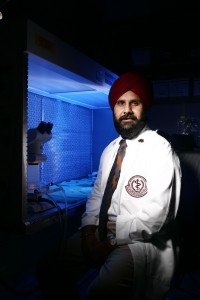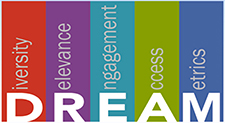By Natalie Phetsamone/reporter

The occurrence of Alzheimer’s disease is rapidly increasing with more than 5 million people affected in the United States, a University of North Texas Health Science Center professor said last week.
It is estimated that by 2050 more than 13 million people will have Alzheimer’s disease, Meharvan Singh, interim director of aging and Alzheimer’s disease research, told NW Campus students Sept. 4.
Alzheimer’s disease is a progressive neurodegenerative disorder. Plaques and tangles in the brain are characteristic of the disease. These cause brain cells to lose function and eventually die, reducing a person’s ability to live independently, Singh said.
“Imagine sticking a piece of gum on a computer circuit board,” he said. “The effect on the brain [from plaques] is similar.”
At this time, the estimated cost of care for U.S. patients living with Alzheimer’s disease is about $200 billion. By 2050, that number is expected to rise to $1.1 trillion, Singh said.
The rates of other major diseases, such as cancers and heart disease are decreasing while the rate of Alzheimer’s continues to increase.
“We spend only $1 on research for every $280 spent on care,” he said. “If we are going to make a difference, we need to make a better balance.”
Singh reviewed the current methods of diagnoses and treatment of the disease, informing the audience of the new frontiers of Alzheimer’s research. These included new imaging advancements and biomarkers, both used to diagnose and determine the effectiveness of treatments.
He also provided strategies to combat the disease.
“Keeping an active brain helps you keep a healthy brain,” he said. “Make reasonable [lifestyle] choices. It is about moderation, applying common sense and not fearing the consequences of asking questions of your medical provider.”
Kathy Saburn, co-chair of support staff for professional development, arranged for Singh to speak at TCC for the second time.
“He is back by popular demand,” she said.
Kiki Robbirds, a NW graphics specialist, attended the presentation because of a family history of Alzheimer’s disease.
“I learned more about what actually happens in the brain,” she said.
Former student and mother of a current student Martha Mann said she attends health presentations such as this because she is caring for her mother-in-law.
“I came to learn new information,” Mann said. “Sometimes I wonder if she may have Alzheimer’s.”


























